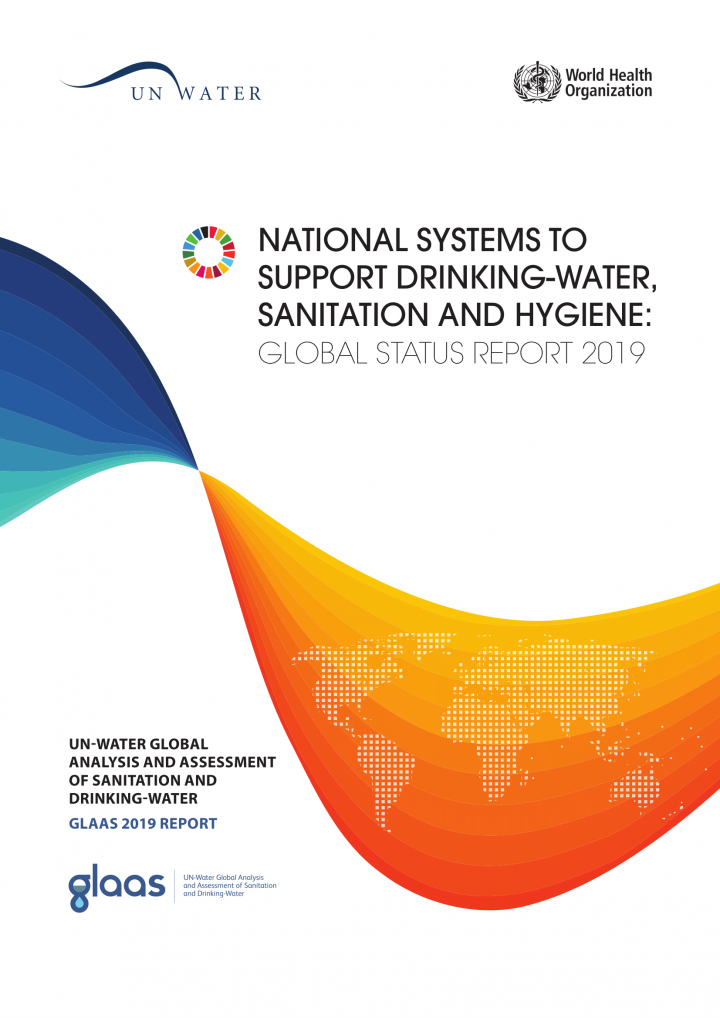UN-Water Global Analysis and Assessment of Sanitation and Drinking-Water (GLAAS) 2019 Report National systems to support drinking-water, sanitation and hygiene - Global status report 2019 WHO, UN-Water (2019)
There is widespread recognition that sustainable and effective WASH service delivery is not only determined by the state of infrastructure, but also by complex institutional, governance and financial management systems. While a “system” may be interpreted or defined in different ways, core elements examined by the UN-Water Global Analysis and Assessment of Sanitation and Drinking-Water (GLAAS) initiative include the extent to which countries develop and implement national policies and plans for WASH, conduct regular monitoring, regulate and take corrective action as needed, and coordinate these parallel processes with sufficient financial resources and support from strong national institutions.
GLAAS findings on the status of WASH systems are varied. Most countries have requisite components in place, but many countries responded that they have yet to operationalize and fully implement measures to support and strengthen their national WASH systems. GLAAS findings highlight gaps and vulnerabilities in WASH systems and the need for further strengthening to assure sustainable and effective WASH service delivery in countries.
GLAAS data also allow an analysis of the extent to which, almost five years into the SDG period, countries have responded to the ambitious WASH targets established by the 2030 Agenda for Sustainable Development. With the understanding that achieving SDG 6 will require dramatic changes by countries, the GLAAS results show encouraging signs that countries have begun efforts to align with elements of the SDGs this early in the SDG era. However, the results of these efforts, and the vast majority of WASH progress in countries, are still to come.
Bibliographic information
WHO, UN-Water (2019). UN-Water Global Analysis and Assessment of Sanitation and Drinking-Water (GLAAS) 2019 Report National systems to support drinking-water, sanitation and hygiene - Global status report 2019 World Health Organization (WHO), Geneva, Switzerland
Filter / Tags
English
Downloads
UN-Water Global Analysis and Assessment of Sanitation and Drinking-Water (GLAAS) 2019 Report
Type: application/pdf
Size: 4.8 MB

